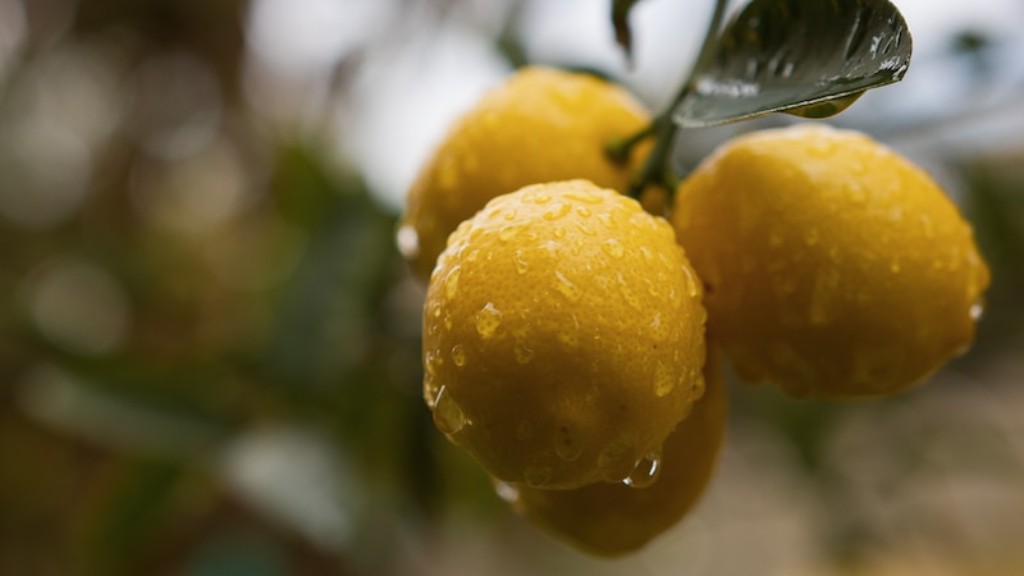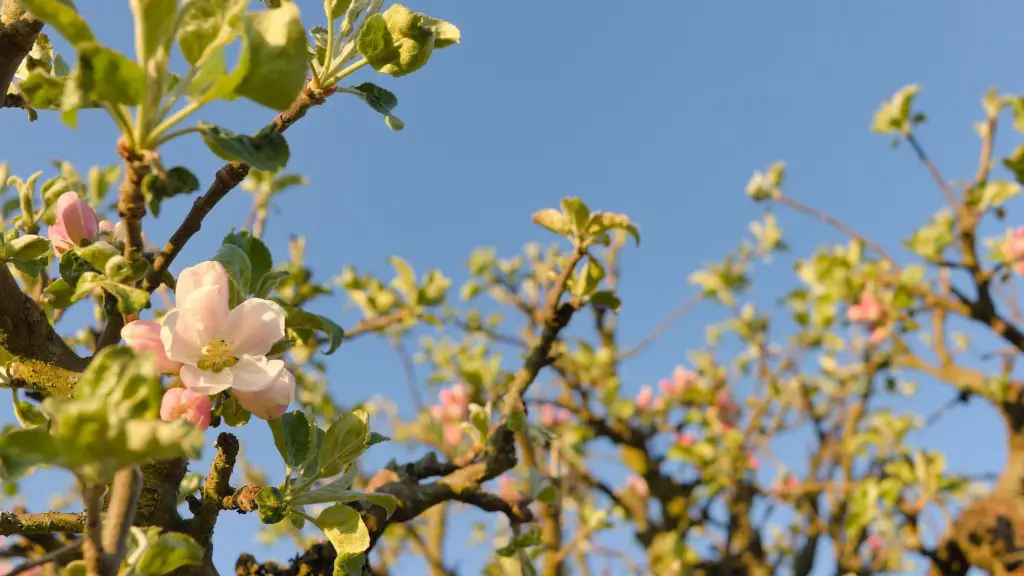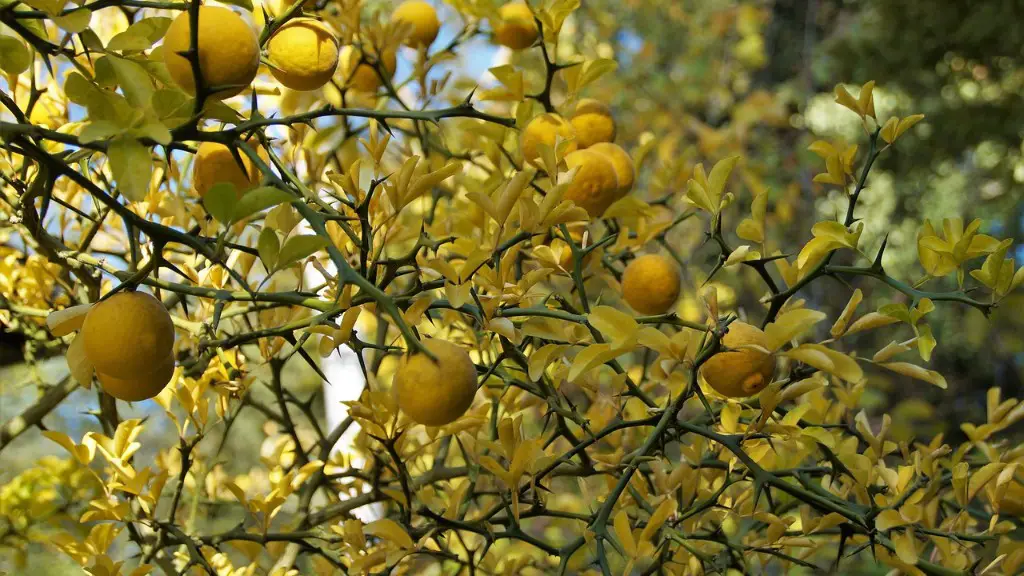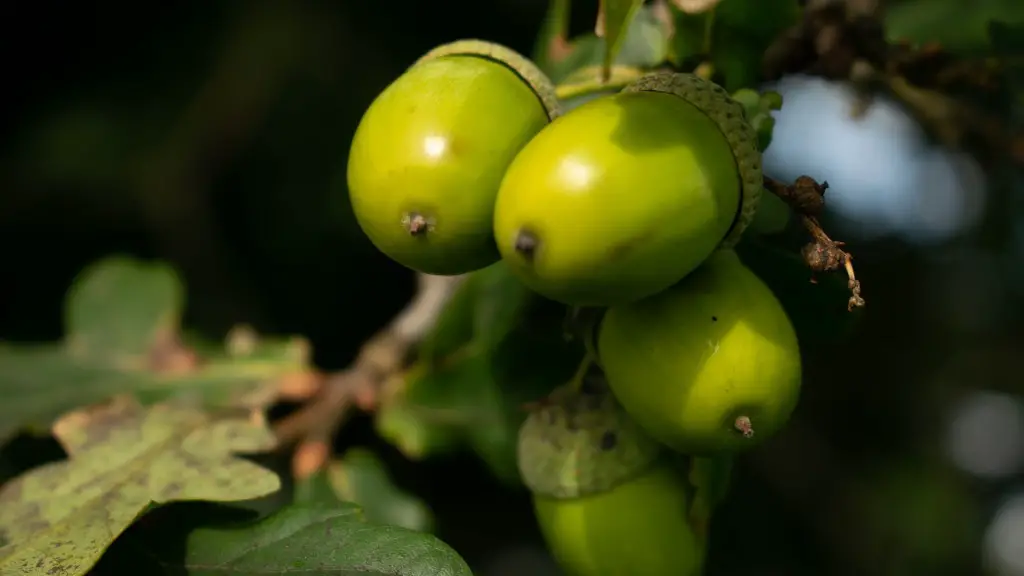If your indoor meyer lemon tree is losing leaves, it’s likely due to over- or underwatering, inadequate lighting, or a combination of all three issues. Lemon trees thrive on bright light, adequate watering, and warmth—especially during growing season. Before diagnosing the issue, it’s important to analyze the tree’s environment and recent changes.
Underwatering occurs when the soil isn’t moist enough and the tree isn’t getting enough water. Check the soil’s moisture levels by sticking your finger into the soil and feeling for moisture. If you notice dryness, promptly water the tree. Overwatering is often caused by an incorrect amount of water or an incorrect frequency of irrigation.
Check the tree’s lighting conditions. If the tree doesn’t have enough light, it won’t be able to grow and produce healthy fruit. Meyer lemons should have at least six hours of direct sunlight a day. If your tree doesn’t have easy access to direct light, you’ll need to provide an artificial light source.
Temperature may also affect the health of your lemon tree. These trees prefer warm temperatures, between 50 and 85F, for optimal growth. Lower temperatures will slow down the tree’s growth rate and cause leaves to drop.
A sudden shock or too much stress can also cause yellowing and dropping of leaves. A shock could be caused by a change in environment such as moving it from outdoors to indoors or from a sunny spot to an area of low light. Too much pruning may also cause yellowing or dropping of leaves.
Improper fertilization can also be a contributing factor. Common fertilizers such as Miracle-Gro should not be used on citrus trees. Instead, use a balanced fertilizer specifically formulated for citrus trees.
Finally, pests or diseases can cause unhealthy leaves and lead to leaf loss. Check the leaves and branches every once in a while and look for tiny bugs or fungal growth. If you identify pests or disease, address the issue promptly.
Overwatering and Underwatering
Overwatering or underwatering a meyer lemon tree can wreak havoc on the overall health of the tree, causing the leaves to drop or turn yellow. To check for underwatering, feel the soil with your finger, and if you feel dryness, water the tree immediately. If you notice overwatering, reduce the amount or frequency of irrigation and make sure the soil drains well.
It’s also good practice to water the tree slowly and over a long period of time, for example by using a soaker hose. This type of irrigation method ensures that the water is drained and doesn’t puddle beneath the tree, which can cause the roots to rot.
It’s important to be consistent and provide the tree with water without fail once a week or all at once every two weeks. If the soil dries out faster, water the tree frequently. If the water is draining very slowly, use less water each time or switch to a clay-based soil, as it takes longer for clay-based soil to dry out.
While underwatering and overwatering can both cause the leaves to drop, the treatment is different for each of these scenarios. Underwatering will require more water and more frequent irrigations, while overwatering needs the opposite—less water and more drainage.
Consistency is the key to successfully watering an indoor meyer lemon tree. If the environment is kept at an optimal level with enough light, water, and warmth, the tree will likely remain healthy.
Light and Temperature
Light and temperature play an essential role in the health of a meyer lemon tree. Lemon trees require bright light for photosynthesis and to produce healthy fruit. If the tree doesn’t have access to enough direct light, it may suffer from yellowing or dropping of leaves. Make sure that the tree is getting at least six hours of direct sunlight a day.
If your meyer lemon tree doesn’t have access to enough light, you’ll need to supplement it with an artificial light source. LED lighting, fluorescent lighting, and incandescent lighting are all suitable and cost-effective options. If you choose LED lighting, make sure to use a full spectrum and place it close enough to the tree.
Temperature can also affect the overall health of your lemon tree. The ideal temperature range is between 50 and 85F. Anything lower than 50F will signifcantly slow down the growth rate and may cause the leaves to drop. Try to keep the temperature as close to the optimal range as possible, especially during growing season.
If it’s too cold, use a grow light to create a warmer environment and place it close enough to the tree so they can still get plenty of light. Also consider moving the tree to a warmer, more comfortable spot indoors, such as near the heater or the fireplace.
Shock and Stress
Shock and stress can also cause yellowing and dropping of leaves on a meyer lemon tree. Shock can be caused by a sudden change in environment, such as moving the tree from outdoors to indoors or from a sunny spot to an area of low light. In this case, adjust to the new environment gradually, by gradually introducing it to the lower light level.
If the tree has been recently pruned, it may also experience yellowing or dropping of leaves. A shock from pruning can also cause lower leaf production and stunted growth. To avoid this, make sure to cut back the branches evenly, and limit the pruning to no more than 1/3 of the canopy.
Stress can also be caused by extreme heat or cold, and it’s best to move the tree to a more stable spot, where it won’t get affected by extreme temperatures. Using a cold frame (a portable box with a glass cover and insulated walls) can also protect the tree from the cold and reduce stress.
Make sure to note any changes you make to the tree and keep monitoring it until the tree has adjusted to the new environment. If you’re struggling with any of these solutions, contact a local nursery or horticulturist for additional advice.
Fertilizer and Pests
Common fertilizers such as Miracle-Gro should not be used on citrus trees, as they’re too rich and will cause yellowing or dropping of leaves. Instead, use a balanced fertilizer specifically formulated for citrus trees. Fertilizers with a ratio of 10-10-10 or 20-20-20 provide the tree with a sufficient amount of macro- and micronutrients.
It’s best to avoid a high nitrogen fertilizer as it can encourage leaf production and provide the tree with inadequate levels of iron and zinc. A balanced citrus fertilizer is the best option for a healthy and productive meyer lemon tree.
Pests and disease can also cause yellowing or dropping of leaves. Check the leaves and branches every once in a while and look for signs of pests or fungal growth. If you notice any, make sure to address the issue immediately. The best approach is to use a natural method of pest control by introducing predators like ladybugs or parasitic wasps, as these have fewer side effects on the environment.
Organic pest control products such as neem oil and garlic oil can also be used to control pests. If the issue persists, contact a local nursery or horticulturist for professional advice.
Conclusion
If your indoor meyer lemon tree is losing leaves, it’s likely due to over- or underwatering, inadequate light, or a combination of all three issues. To keep the tree healthy, make sure that it’s getting enough light, water, and warmth. These three factors are essential for a productive and healthy tree, as well as for avoiding shock or stress to the tree.
It’s also important to use an appropriate fertilizer and check for disease or pests on a regular basis. Choose a fertilizer specifically developed for citrus trees, and treat any pest or disease issues promptly. With proper maintenance, you can keep your lemon tree healthy and productive.




